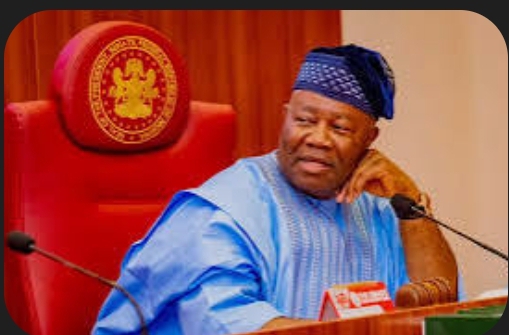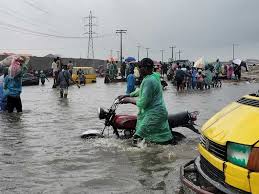About four weeks ago, the Federal Government announced the appointment of Mrs Omotenioye Majekodunmi as the director-general of Nigeria’s National Council on Climate Change. Recognized by the international community as our designated national authority, or official focal point to address the impacts of climate change, the NCCC is the body corporate vested with the powers to develop policies and make decisions on all matters pertaining to climate change in Nigeria. The council is also required to manage the implementation of the provisions of the Climate Change Act of 2021, which established it.
Prior to her elevation, Majekodunmi served as the NCCC’s financial adviser, working on Nigeria’s climate finance strategies, international climate negotiations, and mechanisms for accessing global climate funds. She is a seasoned climate finance specialist and environmental lawyer with over 17 years of experience in areas such as renewable energy, carbon markets, and climate policy. In her private sector career, she is the founder and CEO of Ecoxchange, a consultancy focusing on sustainability, particularly waste-to-energy projects and carbon credit initiatives.
She earned her LLB and Master’s in Climate Change & Carbon Financing from the University of Warwick, UK. Disabled ESG expert credentials were completed via the Welsh Institute of Natural Resources, funded by the Welsh Assembly Government and UNIDO. She is a member of the Greenhouse Gas Experts Management Institute. She previously trained at FRA Williams Chambers and served as executive director of ENSOL Environmental Solutions Ltd, where she created a Federal Government-designated Centre of Excellence on Climate Change. She has advised major international bodies like UNDP, UNIDO, UNREDD, UNFCCC, and the World Bank on carbon market strategies and climate finance.
To me, this is a consummate capacity and experience that positions her for the strategic task of navigating the global climate finance ecosystem, as the world finalizes modalities for the implementation of the Paris Climate Accords. As DG, she is charged with ensuring the implementation of the Climate Change Act; coordinating national climate policy across government sectors; mobilizing international climate finance; strengthening Nigeria’s readiness in carbon markets; and driving policy that supports a low-carbon economic transition.
It is just as well that she stepped in at this moment of paradigm shift toward leveraging climate action as both an environmental imperative and a lever for economic growth, national security, and social inclusion. Hence, she is expected to build on the progress made so far by her predecessors, Dr Salisu Dahiru and Dr Nkiruka Madueke, who laid the council’s foundation—organogram, operational structure, carbon pricing frameworks, initial climate response strategies; and developed carbon market policies, advanced the Energy Transition Plan, and enhanced climate diplomacy and institutional reach, respectively. Majekodumni is to build on this foundation by deepening engagements and institutional coordination and strengthening climate finance infrastructure. Indubitably, because she has what it takes, this could be her finest hour.
There is a lot of work to be done, and time is running out. As Nigeria prepares for the United Nations Framework Convention on Climate Change’s 13th Conference of the Parties, scheduled for Brazil in November, the new NCCC boss must rally critical stakeholders around a national climate position, which would be taken to the world at COP30. Moreover, the country is also finishing touches to its third communication on the Nationally Determined Contributions, known by its code NDC 3.0. To be sure, there is a massive financing gap Nigeria faces in meeting its updated climate commitments, and Majekodunmi has emphasized that tens of billions of dollars are needed across sectors like energy, agriculture, transport, industry, and health.
She had called for a mix of domestic investment and international climate finance, including instruments like the Green Climate Fund and Adaptation Fund; bilateral and multilateral facilities; green bonds, public-private partnerships, and blended finance mechanisms. Interestingly, she posited that financial resources alone were not sufficient, as critical enablers included strengthened institutions, technical expertise, gender-inclusive climate action, and technology transfer and localization of innovation. On the same hand, she urged developed countries and global partners to honor their UNFCCC and Paris Agreement commitments, particularly around technology transfer and innovation support for developing nations.
Nevertheless, I am of the view that the new NCCC boss should innovate new ways of integrating sub-national and local governance into the modus operandi of the council. She needs to capitalize on the present climate buzz in the country to mainstream a holistic local government green growth agenda that takes advantage of Nigeria’s vital resources and immense human capital at the grassroots level, especially now that the President Bola Tinubu administration has empowered local governments to have control over their finances. I believe that a new grassroots focus has the potential to positively attract the attention of the international community.
The NCCC could create a pilot project to catalyze national discussion on local government green governance. It could also engender a process of delineating detailed plans, shape their associated tools and investments, and inform and push for reforms of the sub-national green financial architecture, as it has done at the national level. In essence, like a mother, the council could become the central melting pot for all subnational interests to share innovation, knowledge, experience, and practical approaches to deepen and expand understanding of climate challenges and opportunities and enable the governments to renew their vision and become more assertive in pursuing a climate and developmental agenda through a unified approach.
There are so many global opportunities available for the local governments to leverage for progress through the National Climate Change Council. Let us look at a few. Two Nigerian direct-access accredited entities—Development Bank of Nigeria and Africa Finance Corporation – can originate sub-national projects, and LGAs can partner with them or with line-ministry projects. Secondly, the Global Climate Fund also funds readiness grants for capacity building and project prep at the sub-national level.
Thirdly, the Loss and Damage Fund, operationalized after COP28 with the World Bank as interim host, has its board now in place and moving toward programming. LGAs will typically benefit via national windows for disaster and resilient reconstruction. Fourthly, the carbon markets [results-based finance]—wherein Nigeria is scaling voluntary and Article 6 carbon market readiness through the Africa Carbon Markets Initiative and national policy work. The LGAs can monetize programmes like landfill methane capture, composting, clean cooking, mangrove restoration, and urban forestry – if they set up credible Measuring, Reporting and Verification and benefit-sharing.
However, it must be mentioned that the above projects require sector-specific capacity and in-depth knowledge of the climate finance ecosystem. This is where the NCCC comes in. The Council have to help local governments prepare a minimum ‘bankability’ kit and project concept note aligned with Nigeria’s NDC and local/state climate plans; climate rationale; economic/ financials; MRV plan; institutional fit, co-financing, community/stakeholder engagement, including gender and vulnerable groups.
In other words, the new NCCC boss has her job cut out for her. Her tenure could become a stellar national moment if she helps the LGAs fine-tune their capacity to identify target sectors that present comparative advantages—like flooding in coastal towns, urban transport, municipal waste—for which governments can draft tailored concept notes with the right communication tools and format to the right counterparties to kick things off. Like this, she will become the climate icon to champion a new positive, climate-compatible vision for local government administration in Nigeria, institutionalizing a new paradigm for driving growth and prosperity while reducing carbon emissions.





